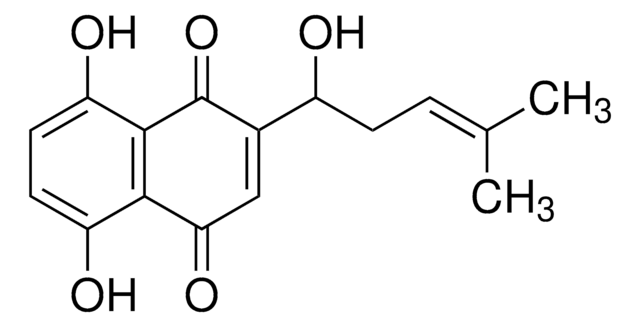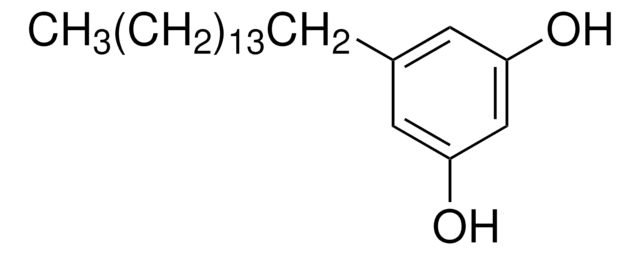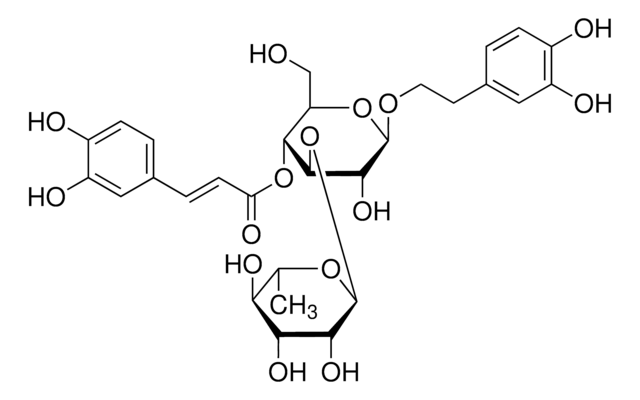172050
Anacardic Acid
The Anacardic Acid, also referenced under CAS 16611-84-0, modulates the biological activity of Anacardic. This small molecule/inhibitor is primarily used for Cell Structure applications.
Sinónimos:
Anacardic Acid, AA, 2-Hydroxy-6-pentadecylbenzoic Acid, 6-Pentadecylsalicylic Acid, Aurora Kinase A Activator, Histone Acetyltransferase Inhibitor III, SUMOylation Inhibitor II, HAT Inhibitor III, p300/CBP Inhibitor III, PCAF Inhibitor I
About This Item
Productos recomendados
Quality Level
assay
≥95% (HPLC)
form
solid
manufacturer/tradename
Calbiochem®
storage condition
OK to freeze
protect from light
color
white
solubility
DMSO: 10 mg/mL
ethanol: 10 mg/mL
methanol: 10 mg/mL
shipped in
ambient
storage temp.
2-8°C
InChI
1S/C22H36O3/c1-2-3-4-5-6-7-8-9-10-11-12-13-14-16-19-17-15-18-20(23)21(19)22(24)25/h15,17-18,23H,2-14,16H2,1H3,(H,24,25)
InChI key
ADFWQBGTDJIESE-UHFFFAOYSA-N
General description
Biochem/physiol Actions
HAT
Packaging
Warning
Reconstitution
Other Notes
Kishore, A.H. 2008. J. Med. Chem.51, 792.
Balasubramanyam, K., et al. 2003. J. Biol. Chem.278, 19134.
Paramashivappa, R., et al. 2002. J. Agric. Food Chem.50, 7709.
Legal Information
Storage Class
11 - Combustible Solids
wgk_germany
WGK 3
Certificados de análisis (COA)
Busque Certificados de análisis (COA) introduciendo el número de lote del producto. Los números de lote se encuentran en la etiqueta del producto después de las palabras «Lot» o «Batch»
¿Ya tiene este producto?
Encuentre la documentación para los productos que ha comprado recientemente en la Biblioteca de documentos.
Nuestro equipo de científicos tiene experiencia en todas las áreas de investigación: Ciencias de la vida, Ciencia de los materiales, Síntesis química, Cromatografía, Analítica y muchas otras.
Póngase en contacto con el Servicio técnico








